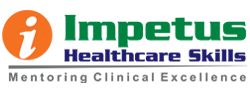Home » Public Health Training
Public Health Training
Maternal and newborn health is our core component and we are committed to contribute our might in the country’s endeavor to achieve Millennium Development Goals 4, 5 and 6. By way of addressing the primary risk factors involved in maternal and neonatal deaths, we are actively engaged in the capacity building activities of the public health system. The focus is mainly on upgrading the human resource for health with relevant materials and innovative methodologies that involve the judicious use of an extremely affordable kind of technology, thus ensuring the delivery of the much need quality care in various levels of healthcare facilities.
IHS would provide multidisciplinary training programs to healthcare professionals who will become adequately equipped to meet the pressing health needs of individuals and communities, and thus improve the effectiveness of the healthcare delivery systems of the nation. Our deeply cherished motto is “Save the lives of mothers and newborn babies every day, on every occasion”.
Public Health Activities
A. Training Program for Healthcare Providers
Mobile Training, Clinical Mentoring and Hand Holding Support approaches for capacity building are innovative and involve the use of first-of-its-kind approaches which aim at substantially strengthening the skills of healthcare providers to enable them to render quality services in the public health delivery system. These kind of training results in safe delivery practices by healthcare providers with recommended clinical protocols, thereby helpsin achieving Millennium Development Goals 4 and 5
B. Quality Management in Public Health Facilities
The majority of public health facilities in India falls far short of the minimum standards of Indian Public Health Standards (IPHS) recommended for the delivery of quality assured healthcare services. IPHS serve as a powerful guiding force in adopting the relevant processes for developing, implementing, and improving the effectiveness of a Quality Management System (QMS) at the facility. A quality based approach at the facility level helps in identifying the gaps in service delivery, tracing its causes and in linking them to organizational processes. The effective building of quality management system and the periodic assessment of the clinical services performed against the set standards are of help in traversing the identified gaps that would lead to the achievement of healthcare goals of national health policy.
C. Competency Based Training in Skill Labs
Skills Lab serves as a prototype demonstration and learning facility for healthcare providers to develop desired competencies. Skills Lab is equipped with various skill stations as per the skill requirements and aid in institutionalizing the usage of Standard Operating Procedures (SOPs) and adherence to technical protocols. Skill lab provides opportunity for repetitive skill practice and simulating clinical scenarios under the supervision of a qualified skill lab Instructor.
D.Supportive Supervision (SS) and Evaluation of Nurses/ ANMs in Public Health Facilities
Supportive supervision is a facilitative approach to healthcare providers, providing necessary mentoring and support to promote continuous improvement in the quality of care. Monitoring of healthcare providers aids in reviewing and identifying strengths and weaknesses and to build on existing efforts. Periodic evaluation of Nurses / ANMs on delivery of care provides timely feedback, helps in continuous development of competencies and promotes safe clinical practices.
E. Promotion of Family Planning Services
The promotion of family planning services such as PPIUCD, IUCD and permanent method of sterilizationarein focus to greater extent. The skill building of nurses on PPIUCD and IUCD techniques make the nurses to practice the service efficiently and confidently. Effective counselling on family planning methods to the reproductive age group in the facility and community helps to address the unmet need for family planning.
F. Outreach Activities
Capacity building training for frontline health workers (ANMs / ASHAs) assist in developing the skills required to deliver appropriate community level care to the high risk groups (Antenatal, Postnatal, Newborn, under-5 children, Adolescent girls and School drop outs). Continuous IEC (Information, Education and Communication) creates awareness on health aspects among community and promotes mobilization to demand high quality facility based services.
G. WASH Program (Water and Sanitation Hygiene)
Water, Sanitation and Hygiene (WASH) in schools is globally recognized as a key intervention to promote children’s right to health and clean environment and to influence a generational change in health promotion behaviour and attitudes. Baseline survey of schools, School Sanitation and Hygiene Education (SSHE) for school teachers and children, onsite mentoring of school teachers and school children on health enhancing behaviours, provision of sustained child-friendly WASH facilities in Schools (Safe drinking water and water facilities for handwashing), deworming of children and periodic monitoring and evaluation of Schools promotes safe hygienic behaviors among school children and thereby prevents water and sanitation-related diseases.
